The majority of individuals practicing any martial arts related activities are not educated on what they can and cannot do in a self-defense situation. Many people think they have the right to use excessive and even lethal force above and beyond what is required to stop the attack. I often hear students say “if someone attacks me I will f**k him up bad,” but this way of thinking shows that they are often oblivious to the consequences of their actions?
A street attack can be a harrowing experience, however claiming you had the right to seriously injure an attacker could put you in a position where you would be forced to experience the justice system up close and personal. You may end up with an unwanted long-term residency in a correctional facility and what you say after the incident will have a definite impact on how you are charged.
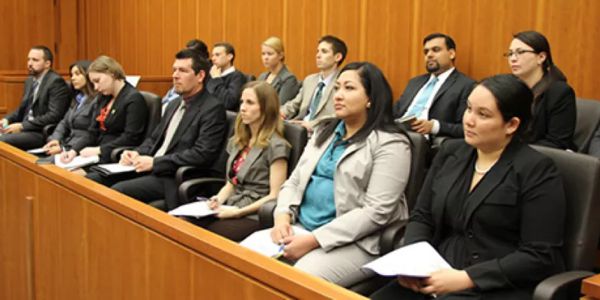
There are three basic constructs that you must be aware of:
- Justification: This means, did you have the right to fight. Did you try to avoid or escape the conflict?
- The Use of Force Ladder: Refers to the type of response you meter out. If someone punches you, you can’t respond in an unreasonable manner, e.g. as stabbing him in the eye. The response needs to be somewhat commensurate with the attack.
- Dealing with Interrogation: What you say to the police will determine what happens next. Informal questioning, warrants, arrest and false confessions all are based on what you tell the police right after the incident.
*Beware: you will probably be judged by a jury who may never have been attacked in their lives, and you will need to make a compelling argument in your favor.
There are many myths about criminal law, mainly from TV, and there’s a huge difference between fact and fiction. This article constitutes a basic set of guidelines to follow within the United States – some of these may also work overseas. The best course of action however is to talk to a local criminal defense attorney to understand how the local laws may affect you BEFORE you get into self-defense situation.
Most police officers are good people and this is not in anyway an anti-police rant, but the system is setup to deal with criminals and, from the perspective of the police who mainly deal with low-life criminal types all day long, all suspects are guilty until proven innocent – so be prepared.
HOW POLICE WORK TODAY
Police tactics have dramatically changed in the past few years, many retired police officers have stated that there is much less training than in previous eras. Police are also not as tough and street savvy as they were in the past, hence the over reliance on their weapons. Some police officers may even lie and break the law. Video evidence has shown that a few officers will routinely plant evidence, lie under oath, make up false charges, and commit illegal acts to get an arrest. Judges will almost always side with the police.
When charged with a serious crime, most individuals are in a state of shock – they have no idea how to handle the situation. The most effective tool that police utilize are false confessions. Hundreds if not thousands of innocent people have confessed to committing crimes they didn’t commit simply due to tricky police questioning.

False Confessions
False confessions are the leading causes of wrongful convictions. Police do it all the time, more so for homicides and high profile felonies. By definition, “a false confession is an admission to a criminal act – usually accompanied by a narrative of how and why the crime occurred, that the confessor did not commit.”
Three Types of Confessions
- The Voluntary False Confession
Innocent individuals may volunteer false confessions for a variety of reasons including: mental impairment, the need for self-punishment, protecting the actual perpetrator, or a desire for notoriety. - Compliant False Confessions
This is usually after an intensive interrogation where the individual believes in the anticipated benefit of confessing, i.e. being released. - The Persuaded False Confession
This is a false confession given by an innocent person who comes to doubt his own memory and actually believes he committed the crime without actually remembering that he did so. They will state that the only way out is to confess to a lessor crime.
The Police Perspective
Police consider all suspects guilty, their job becomes easier if you confess or put yourself at the scene of a crime. They will lie and use a variety of techniques to break down a suspect’s resistance. Police are excellent interrogators, they do it all day, everyday.
TALKING TO THE POLICE
A police officer has the right to ask you questions; and you have the right to politely decline to answer. During a traffic stop if the officer asks to see your driver’s license or proof of insurance, you may not refuse. When you sign the forms for accepting a driver’s license, you are giving the police permission to ask you for these documents upon request, and you are acknowledging that you will cooperate when asked.
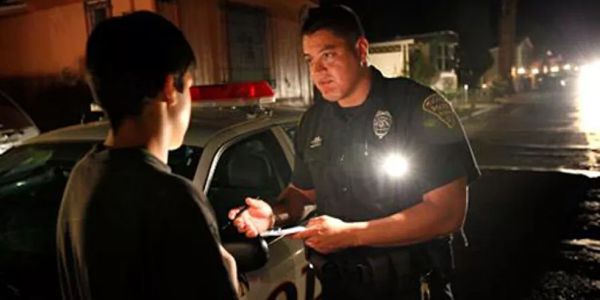
Informal Questioning
Informal Questioning occurs anytime an individual interacts with police. If an officer stops you he may suspect you of committing a crime, his goal from that moment is for you to confess. To clarify your status, ask the officer if you are under arrest, and free to go. If he says you are free to go, leave immediately. The officer might also say he just wants to engage in a friendly conversation.
The correct reply is “I wish to remain silent.” If you do not clearly invoke your right to silence with such a statement, you may subject yourself to continued questioning by police.
Police will often frame the conversation in a manner where they seem sympathetic to you and say they only want to hear your side of the story. This is a trick and they will use the information you volunteer against you.
IT ALL DEPENDS ON YOUR STORY
What you say can certainly hurt you. If you are engaged in a physical altercation and police just happen to arrive and your attacker is on the ground – saying that he attacked you and you justifiably beat him and stomped his head because he deserved it, will surely get you a felony charge. What you say to the police can either mean no arrest, a violation or a felony. Police can always upgrade your charge based on what you say to them.

Police at Your Residence, Workplace or Vehicle
If police come to your house, apartment or workplace DO NOT let them in, offer to speak to them outside. If they threaten to get a warrant, tell them to do so. If they thought you were guilty in the first place, they would have brought the warrant.
If a detective calls you and requests that you come to the precinct to give a report, get a lawyer fast, this means you will be arrested.
*NOTE: never ever allow police to search your vehicle without a warrant. If police ask “Do you know why I stopped you?” Do not answer, instead reply “I don’t know.” They are fishing for an incriminating statement. They may also say, you have nothing to hide do you, again, a trick to get you to open up.
*NOTE: Always comply with a police officer’s requests, never ever resist – never argue, if the officer gets aggressive with their questioning just respond with “I wish to remain silent, and to speak to a lawyer.”
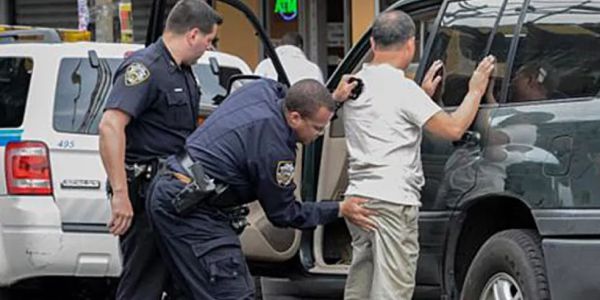
*NOTE: THE TERRY FRISK ALERT
Police can do light frisks without a warrant claiming they are in potential danger or for probable cause. Some police officers may bully you and in some cases physically assault you to create a false confession, never resist or lay hands on the officer, you can be shot.
REGARDING WARRANTS
Unless the search warrant clearly states that it covers an unannounced entry, the police officer must knock, ring your bell and announce himself (unfortunately this is starting to become the exception). If the police have a search warrant they may not search any person within your premises or vehicle unless they feel they are in danger.
In cases where the police say they will obtain a warrant and don’t have one, they are trying to trick you. Recently a new law was passed where an occupant in your premises may give police authorization to come in and search your premises despite your objections. It’s important to get everyone on the same page regarding this before it happens.
TRICKS OF THE TRADE
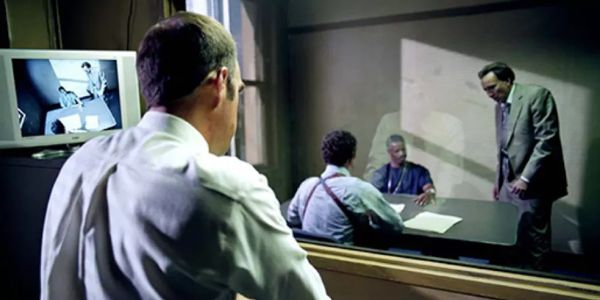
Formal Questioning
If police arrest you do not speak to them, ask to see a lawyer. Miranda warnings kick in during custodial interrogation not at the time of arrest as often seen on TV. DO NOT sign any papers, thousands of innocent people have routinely signed away their Miranda rights without a second thought.
A study of police interrogations during the 1990s found that more than 80% of suspects waived their Miranda rights – they just signed their protections away. Police will also infer, “well, those rights are for the guilty, right — and you’re not some kind of murderer, are you? – Don’t fall for it, keep your mouth shut.
Miranda Warning
An officer will only read you the Miranda Warning if he or she plans on using your answers as evidence at a trial. Therefore, in many instances you may be stopped and asked questions without being read those rights. You have the right to refuse, but the officer may then decide to arrest you for breaking the law in another area, such as loitering (which is a law that can be broadly interpreted so that police can use this as a reason for arrest.
How Long Can Police Hold You?
The police can hold you for up to 24 hours before they have to charge you with a crime or release you. They can apply to hold you for up to 36 or 96 hours if you’re suspected of a serious crime, e.g. murder. You can be held without charge for up to 14 days if you’re arrested under the Terrorism Act.
*Note: Police have been known to ignore your requests for an attorney.
The Infamous “One Phone Call”
You might get to make your phone call – or perhaps not, it all depends on the circumstances and how the officer feels about it. Since police will confiscate your mobile phone, it’s important to memorize one or two important numbers of people that know how to help you, preferably a criminal attorney. If you use a precinct phone watch what you say, they will be listening and taking note of the number you call. If police ask for your phone access code, say no, let them get a warrant.
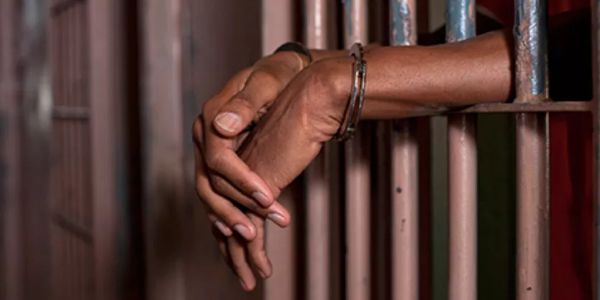
IF YOU ARE ARRESTED FOR A CRIME
If you need to defend yourself on the street and happen to seriously injure the attacker, most individuals will often wait for the police. However in this day and age, murderers and psychos are often released by progressive judges – there is a distinct possibility that you will be charged, not the criminal.
NOTE: The law requires you to remain at the scene of a crime, leaving the scene can bring serious consequences, however if you determine that there is more than one attacker, or that the attacker’s cohorts are coming to his aid, it may be prudent to escape to safety and contact the police later.
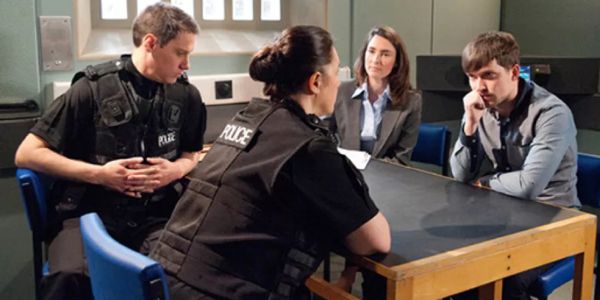
Two Popular Interview Tactics
If police suspect you of a crime and take you to the precinct, they will often utilize a plethora of tactics designed to scare you to confess even if you are innocent.
The Reid Technique
Reid tactics include three points:
- Isolate the suspect, often enhanced by a windowless room
- Maximization, “bad cop” tactics. The bad cop is usually a hard-ass, accuses you of a crime, denies you are innocent.
- Minimization, now its time for the good cop, he’s sympathetic and tries to get you to confess to a lessor crime with the promise of releasing you. Again, tell them you will not speak without a lawyer present.
The Peace Method
A new interviewing technique is gaining acceptance as an effective way to discover the truth without creating false witnesses. The PEACE (Preparation and Planning, Engage, Explain, Account, Closure and Evaluate) method is being applied in the UK, Denmark, New Zealand and a few other countries. It resembles a journalistic approach, and is straightforward. It assumes that a liar will gradually build up a series of false explanations, and the more the subject talks, the more he has to lie and the less likely he can keep the lies straight in his head. Eventually, an inconsistent detail will break down the whole fabrication.
The trick to surviving an interrogation is patience. Don’t offer up anything. Don’t explain. Answer the question and only the question that is asked so you don’t accidentally put your head in a noose.” Better yet, don’t talk at all and ask for a lawyer.
TACTICS POLICE USE AGAINST YOU
Police will often lie that they have physical evidence. That may include DNA, fingerprints, eyewitnesses, and videotapes. However if that evidence was solid they wouldn’t try to force a confession out of you.

The Holding Cell Ploy
For most people, being put in a holding cell is an unnerving experience to say the least. Being held and intermittently interrogated for long hours can make anyone want to confess. In addition, police may even put an undercover agent in the cell with you, spying, talking and listening to you elicit a confession.
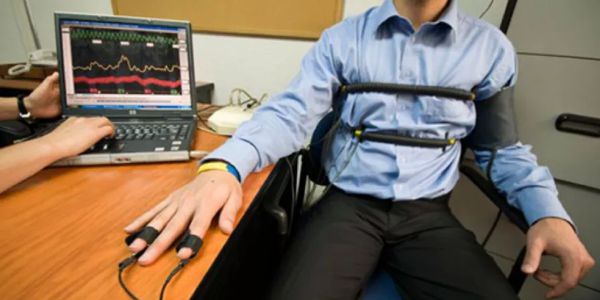
The Polygraph
Police will often bluff you to take a polygraph. Aside from the polygraph examiners who work for the police (and make lots of money administering the tests) Polygraphs do NOT work, they are intended to scare you. The usual ploy is “oh well if you are innocent, you have nothing to worry about.” Remember, polygraph tests are not admissible in court, and you are under no legal obligation to take it.
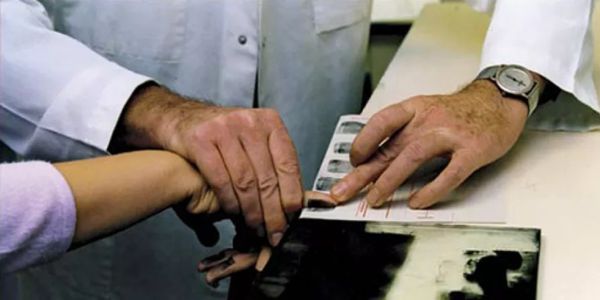
The Fingerprint Myth
No two fingerprints are ever the same – that’s absolute nonsense! This comes from the Sherlock Holmes stories and this myth has been perpetuated for over 100 years. Fingerprint evidence has been an important aspect of crime fighting for more than a century because of the basic assumption that every person has a unique set of prints.
One expert recently stated the belief that unique fingerprints can be identified quickly through a computer database is flawed, Britain’s Telegraph newspaper reported. Mike Silverman, who introduced the first automated fingerprint detection system to the London Metropolitan Police, says that human error, partial prints and false positives mean that fingerprint evidence is not as reliable as it was once thought to be.
In fact, no one has yet proven that fingerprints are indeed unique. Families often share elements of the same pattern. There are also other problems, such as scanning fingerprints of the elderly as their skin loses elasticity and in rare conditions leaves some people with smooth, featureless fingertips.
Despite the way fingerprint evidence is portrayed in the media, all comparisons ultimately involve some human element, and as a result, they are vulnerable to human error,” said Silverman, who has recently published his memoirs, Written in Blood, and now works as a private forensic consultant.
The fingerprint more often isn’t perfect, particularly at a crime scene. It might be dirty or smudged. There are all sorts of things that reduce the accuracy. It is important that juries become aware of this. Too often they see programs like CSI that raise their expectations. What you see on CSI is simply fantasy. So when police are shouting at you that they have conclusive fingerprint evidence putting you at the scene – ask for your lawyer.
We Have Multiple Witnesses Who Will Testify
Another myth. Eyewitnesses are the most unreliable factors of any investigation. In dozens of eyewitness tests, faux crimes were setup by psychologists with the witnesses later being brought together to recall the incidents. In all cases the witnesses described the crime scene completely different than the reality.
The same criminals were described as white, black, Hispanic, short, tall, thin, fat and wearing all types of clothing; the same thing for the victims. 12 people gave 12 different descriptions.
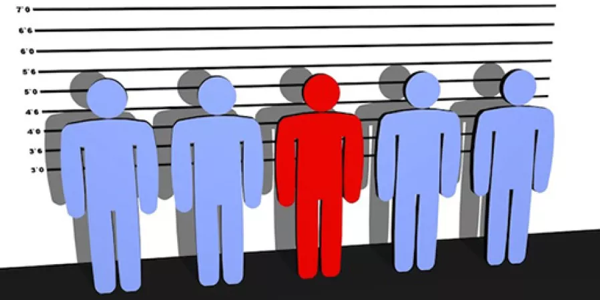
Beware of the Police Lineup
In some cases police may place you in a lineup and the lead detective may mildly and/or indirectly suggest it’s you! If the person selects you and you are innocent, don’t fall for it, this occurs more often than not. If the police say a witness definitely fingered you ask for your lawyer.
The DNA Myth
There have been hundreds if not thousands of forensic cases done by reputable forensic labs that have improperly analyzed DNA evidence. Forensic specialists work for very low wages and have huge backloads. In addition they are often pressured by the prosecutor and police to produce results in their favor.
DNA evidence isn’t foolproof, the human factor is the most important element, and in many cases it’s mishandled. At any given moment you are carrying hundreds of DNA samples on your shoes, sleeves, hands and laptop, from who knows who?
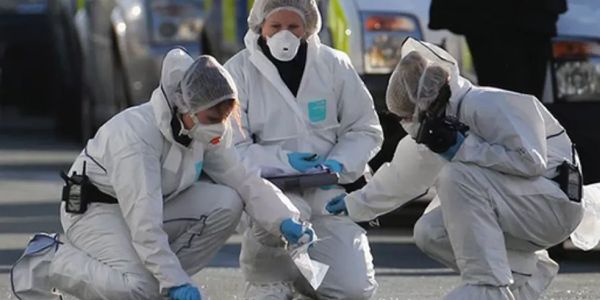
DNA can easily be transmitted from person to person and object to person. Heat, sunlight, exposure to chemicals and mishandling can easily destroy DNA. Even in the best circumstances matching it to a single person will literally take weeks and won’t necessarily produce the desired results.
In any case, do not make it easy for the police. Don’t volunteer your DNA, usually done with an inner cheek swab. Police may also try to get your DNA through surreptitious means, that is by offering you something to eat or drink, they then use that material for a DNA sample. If police say that they have your DNA at the crime scene, ask for your lawyer.
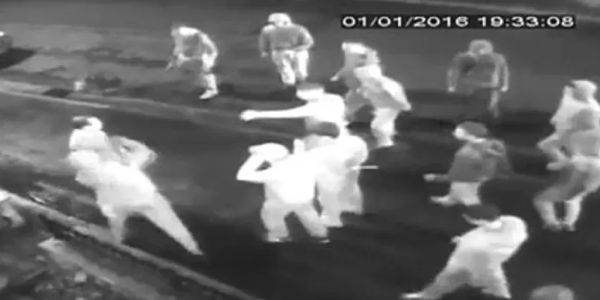
Video Evidence
If police say they have video evidence or recordings of you committing a crime, they will still request a confession. Why, because video evidence is quite often iffy, there is no sound and in many cases it’s difficult to see what really happened, many cctv videos end up not being used.
REPRESENTATION
The eternal question, are expensive lawyers better than court appointed ones? There are great attorneys on both sides.
CONCLUSION
If you get into a fight make sure there is justification for defending yourself. Make it clear to the attacker that you don’t want to fight and try to get away. If he follows you and keeps attacking, that becomes justification for self-defense. Remember the Force Ladder, you can only use reasonable force to defend yourself. If you speak to the police, the best response is to say that you wish to remain silent. Never ever proudly state that you had a right to defend yourself.
In any case it’s best not to admit a self-defense excuse, just say you were trying to get away or trying to stop him from hurting you. Admitting self-defense may be construed as an admission to an assault.
*NOTE: If you have worked with a good criminal defense lawyer please send us his/her contact information so we can add it to our files, we are compiling a national and global list of attorneys.
Visit Defense Science for more articles by WR Mann.
CRIMINAL DEFENSE LAWYERS
New York City
Charles Sanford Smith
charles@bkcriminaldefense.com
917-828-4616

To contact WR Mann and Defense Science visit his listing on the Martial Arts Schools and Businesses Directory by clicking on the image on the left.






